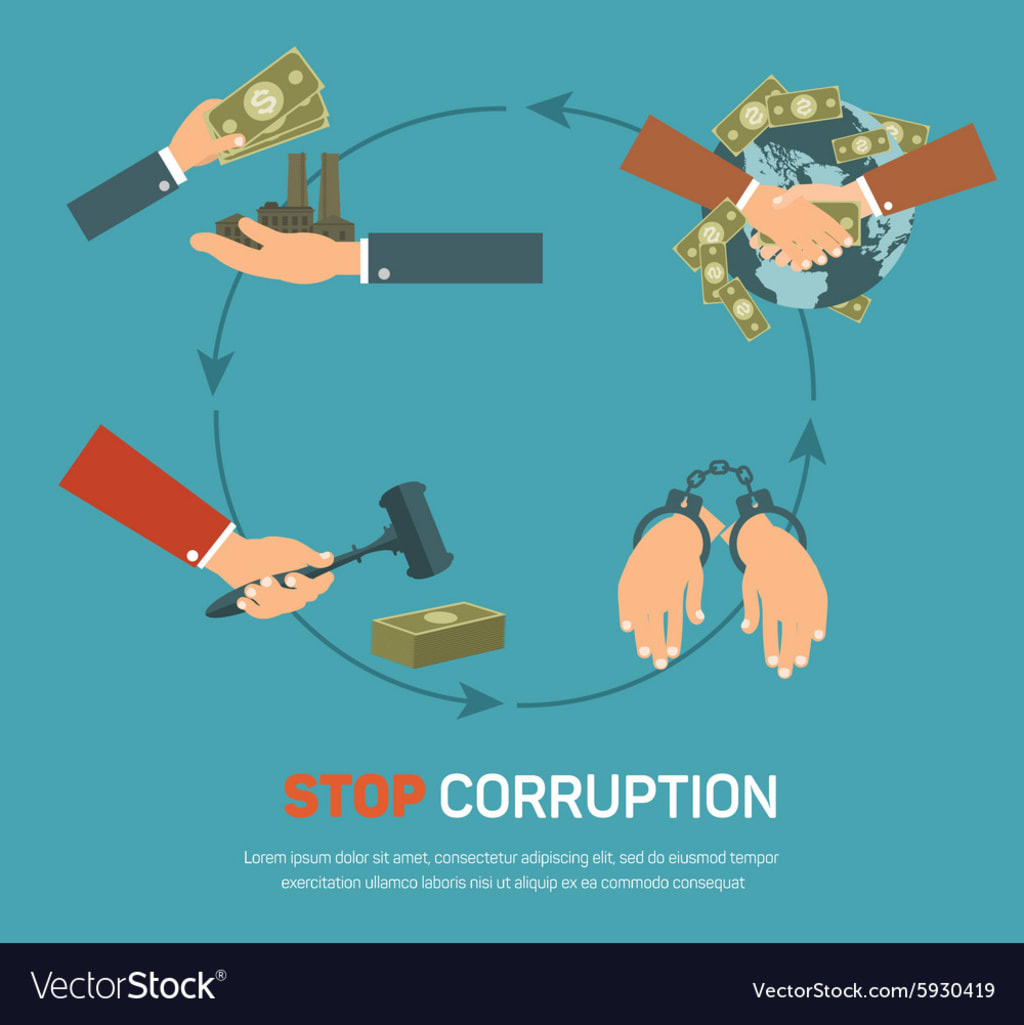
Corruption is a complex and multifaceted phenomenon that affects many aspects of society and has various forms. It refers to the abuse of power or position for personal gain, and it can take place in the public sector, the private sector, or in civil society. Corruption undermines the rule of law, undermines economic growth, and erodes public trust in institutions. It is a global problem that affects both developed and developing countries, and it takes many different forms, ranging from petty bribery to grand corruption.
In the public sector, corruption often takes the form of bribery, embezzlement of public funds, and nepotism. Bribery is the most common form of corruption, and it refers to the exchange of money or other benefits for services or favors. This type of corruption affects public services and institutions, as individuals seek to gain an advantage by paying bribes to officials or politicians. For example, a person might pay a bribe to a police officer in order to avoid a traffic ticket, or to a government official in order to obtain a building permit more quickly.
Embezzlement of public funds is another form of corruption that occurs in the public sector. This refers to the misappropriation of funds or assets that are intended for public use, and it is often committed by public officials or politicians who have access to public funds. This type of corruption undermines the public trust in government and reduces the ability of the government to provide essential services to its citizens.
Nepotism is a form of corruption that occurs when public officials use their position to secure employment or other benefits for their family members or close friends. This type of corruption undermines the merit-based selection of public officials and reduces public trust in government.
In the private sector, corruption takes the form of bribery and embezzlement, as well as other forms of illegal behavior, such as money laundering and price fixing. Bribery in the private sector is often used to gain an advantage over competitors or to influence government officials to make favorable decisions. Embezzlement in the private sector refers to the misappropriation of company funds for personal gain. Money laundering is the process of disguising the proceeds of illegal activities as legitimate funds, and it is often used to hide the proceeds of corruption and other crimes. Price fixing refers to the illegal coordination of prices among companies in a market, which undermines competition and can result in higher prices for consumers.
Corruption also affects civil society, as individuals and organizations seek to use their influence to advance their own interests. For example, advocacy groups may use their resources and influence to advance the interests of their donors, rather than the public interest. This type of corruption undermines the ability of civil society to hold public officials and private actors accountable, and it erodes public trust in civic institutions.
The impact of corruption is far-reaching and affects many aspects of society. It undermines economic growth and reduces the ability of countries to attract investment, as investors are less likely to invest in countries with high levels of corruption. It also reduces the effectiveness of public services and institutions, as resources are diverted from their intended purposes and essential services are not provided. In addition, corruption undermines the rule of law, as corrupt officials and politicians are less likely to enforce laws and regulations, and individuals are less likely to trust the legal system to protect their rights and interests.
The fight against corruption requires a multi-faceted approach, involving both legal and non-legal measures. Legal measures include the enforcement of anti-corruption laws and regulations, as well as the strengthening of legal systems and institutions to prevent corruption. Non-legal measures include increased transparency and accountability in government and private sector institutions, as well as public education and awareness-raising efforts to promote the values of integrity and honesty.
Corruption is a form of dishonesty or a criminal offense which is undertaken by a person or an organization which is entrusted in a position of authority, in order to acquire illicit benefits or abuse power for one's personal gain






Comments (3)
10 \ 10
Well written 👍👍
Nice👍👍